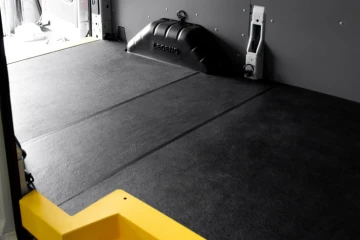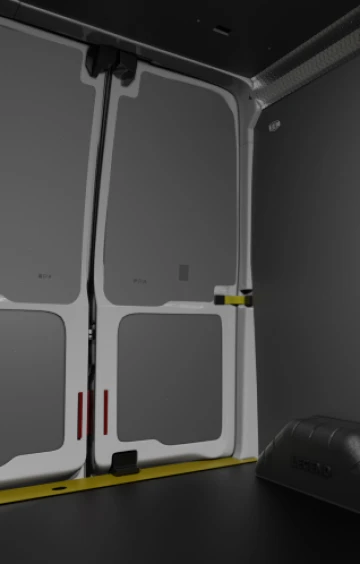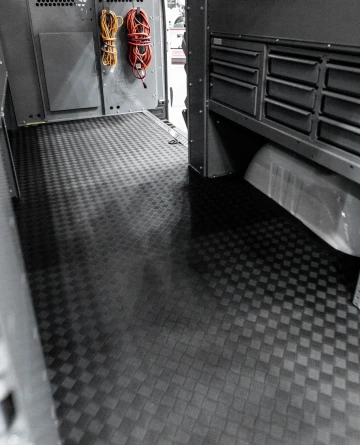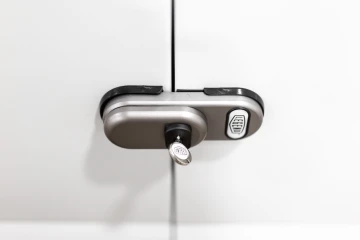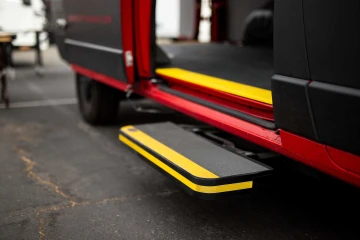18 Apr 22
Why No Ply
“Why No Ply” has become a common phrase here at Legend. As a manufacturer of premium composite van floors, liners, and accessories - we’ve come to learn that using plywood for van flooring or walls is a thing of the past - and is beyond unnecessary. The point of this article is to give you a clear understanding of why plywood linings are not a good option for cargo van fleets. We won’t leave you without an honest comparison and solution, however. There is a better way!
First of all - let’s be clear. Even Legend has a coated plywood van floor in its lineup, and has for years. But it has become very unpopular, and not just because of its much better alternatives - fleet managers and upfitters are realizing it just doesn’t make sense.
Ready? Here’s Why No Ply.
#1 - Supply Chain & Rising Costs - Supply & Cost
The plywood market is becoming ever-volatile, once again. Coated birch plywood is getting harder to purchase with longer lead times and as expected, the price is skyrocketing. There are many projecting that the supply of coated plywood could reduce by up to 80% in the coming months.
To make matters worse, much of the world’s supply of coated plywood comes from unsettled regions in Eastern Europe. Many wholesalers are looking elsewhere and so is the end-user. This is stretching out order-to-delivery times significantly and its scarcity is causing prices to soar.
The point is - the plywood market is incredibly volatile. Fear not - there’s an alternative to avoid this mess.
Legend interior protection products for vans are made in North America. No catches, no joke. Our entire manufacturing process for all of our products (excluding that wood floor!) are entirely in North America. This guarantees a reliable supply of van floors and wall liners with short lead times.
#2 They Don’t Last - Quality
Plywood lining in vans was never a good option anyways - because they just don’t last. Exposure to moisture and/or chemicals causes the plywood to break down over time. Phenolic resin coatings easily chip within months from wear and tear (see below). When this unreliable plywood is the foundation of a van upfit with shelving and other equipment amounting to thousands of dollars, just think of the hassle and cost it will be when you have to replace the plywood floors after a year or two!
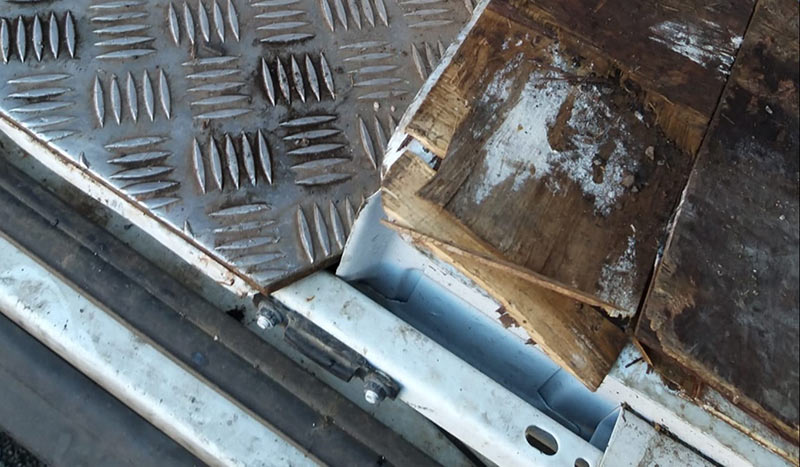 Visible damage of coated plywood floor in an electrical fleet van after just 16 months of usage!
Visible damage of coated plywood floor in an electrical fleet van after just 16 months of usage!
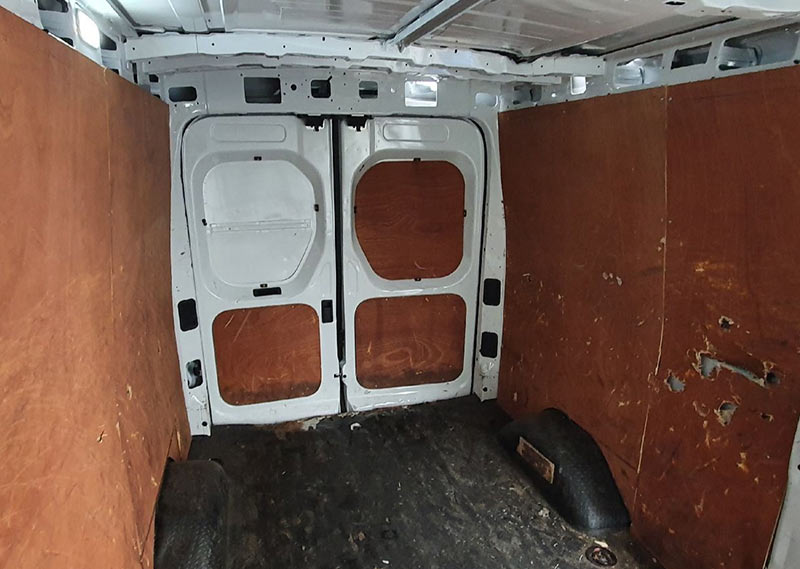 Punctured plywood liner in a delivery fleet van, exposing the bare van metal panels.
Punctured plywood liner in a delivery fleet van, exposing the bare van metal panels.
Unlike plywood, Legend composite floors and insulated wall liners are extremely durable, and built to last. Legend products protect vans for years to come, extending vehicle life, and increasing resale value. We have an obsession and passion for quality, and always have. Legend doesn’t waste time designing anything but products that last for cargo vans!
#3 Pay Attention to Payload - Weight
Wood you put a log in the back of your cargo van? Let alone in an electric van?
We woodn’t either.
Ok - that was highly corny, and if you’re a carpenter or lumberjack - maybe you would put a log in the back of your cargo van! But you get the point - wood is very heavy. That’s all there is to it.
As gas prices soar and electric vans are becoming more available, payload is something to seriously consider when building a cargo van upfit. For fuel cost savings (ICE Vans) and/or to preserve as much precious range (EV’s) as possible - cargo van fleets everywhere are looking for lightweight materials to protect their cargo vans’ floors and walls.
Legend has a new no-drill lightweight floor called EVOLVE. It’s 53% lighter than our StabiliGrip floor and other traditional plywood floors, and is extremely durable. EVOLVE Lightweight Van Floor is already in thousands of last-mile delivery E-Transits!
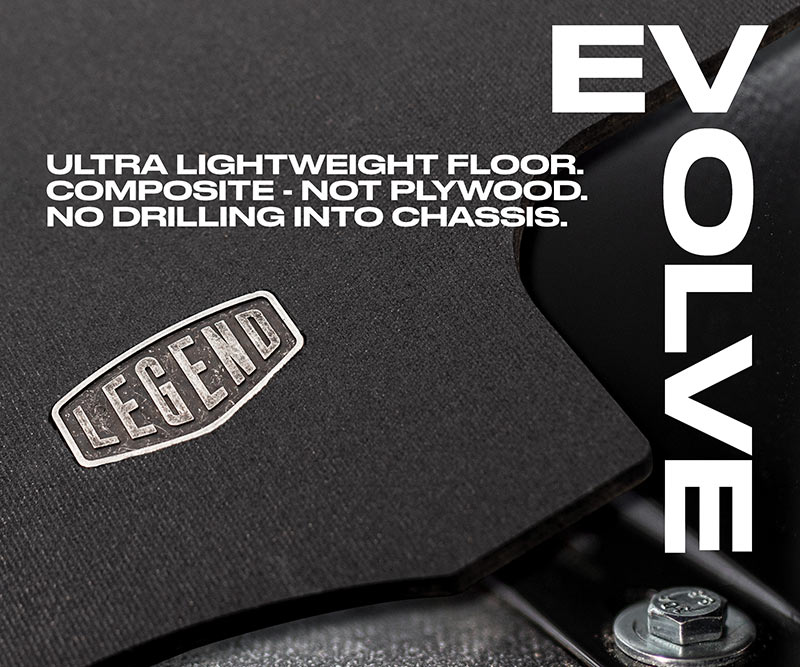 EVOLVE Lightweight Floor shown with no-drill fastener kit fastening shelving to flooring.
EVOLVE Lightweight Floor shown with no-drill fastener kit fastening shelving to flooring.
#4 Save The Trees - Sustainability
Look, we’re not claiming to be environmental experts, nor do we claim to be saving the planet by any means. But we are fairly certain that coated plywood comes from harvesting trees by clear-cutting forests - which harms the environment in many ways. It also uses harmful chemicals and glues to bond the sheets of ply together, which when put back in the environment, is also harmful.
Our most popular product, the StabiliGrip van floor - uses 75% recycled material (EVOLVE does too!). The scraps/excess from the production of this van floor then go into production of another product. It’s also produced without using any added chemicals or glues, and without stripping any forests, anywhere. Legend products are truly sustainable - products fleet managers are proud to use.
#5 It’s a Slippery Slope - Anti-Slip
Most plywood floors for vans have something called a phenolic resin coating on the top. This usually has a bumpy texture in the shape of circles, hexagons, or other shapes, and is advertised as being “grippy”, for driver safety. That does sound really great, because driver safety is of utmost importance.
The problem is: coated plywood floors aren’t actually that grippy at all. When they’re wet, they become even more slippy. That is not driver safety - that is a hazard for trips and falls.
You guessed it - Legend’s composite floors are extremely anti-slip. Both StabiliGrip and EVOLVE composite floors are designed with a fine grip sandpaper-like texture, which is grippy for drivers to walk on, and keeps cargo in place. Legend floors are industry-leading and trusted by some of the largest fleets in North America.
.jpg) Delivery driver entering vehicle by stepping on the threshold onto EVOLVE, Legend’s Lightweight Floor designed for EV’s.
Delivery driver entering vehicle by stepping on the threshold onto EVOLVE, Legend’s Lightweight Floor designed for EV’s.
Okay, okay. We talked a bit more about ourselves than we intended to in this article. But if you got this far, we hope this article gave you some insight as to why we honestly don’t recommend plywood as any part of a cargo van upfit. It’s not just because we’re sure we offer a better product, it’s because we actually want to help you when considering materials for cargo van floors and walls!
P.S.
Still not convinced? Here’s a video showing some comparisons between composite and plywood floors for vans, including a durability test. Here’s a video showing how strong our DuraTherm wall liner is.
P.S. As a parting note/bonus point, let’s talk about cost. One of the most common questions we get asked is: how much does your composite floor cost compare to your plywood floor?
The answer: about the same. But the detriments, oh the detriments, of coated plywood floors, are far more in number, hassle, and cost in comparison to our composite floors. Why wood you choose wood!?
There are some cheaper coated plywood options out there, but as expected, the quality is much worse. Cheap, coated plywood should not be the foundation of anyone’s precious cargo van upfits - especially when vans are the lifeblood of their mobile operations.
That’s Why No Ply.
Thank you for reading. We hope you found this article informative. Please explore our product range here - or would you like to book a quick 15-minute live video-call van demo with one of our team members?
Share Article
Related news
View all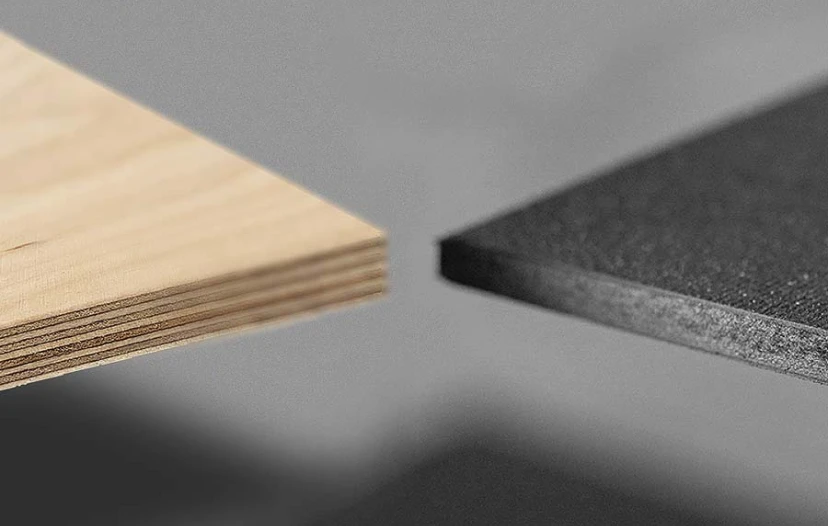
Van Flooring Comparison: Plywood vs. Composite
How your choice of cargo van floor costs you more than you think.
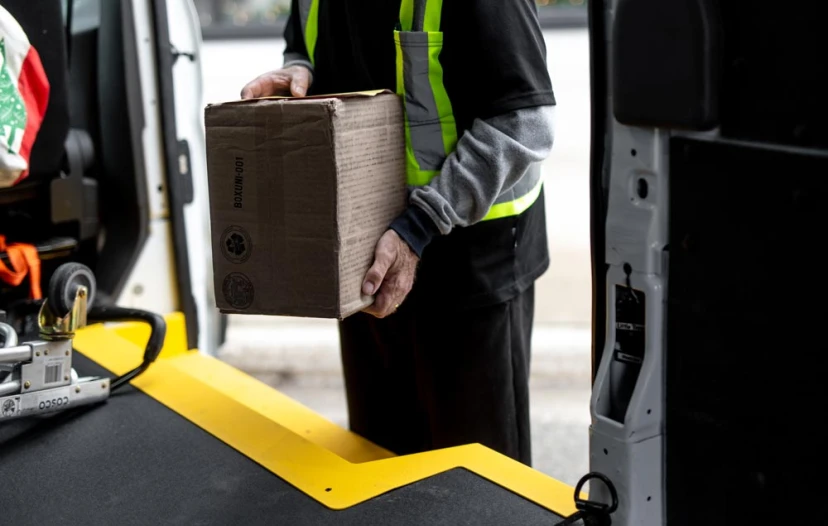
How Upfitting will Reduce your Vehicle's Cost of Ownership
This small expense will instantly blossom your bottom line.
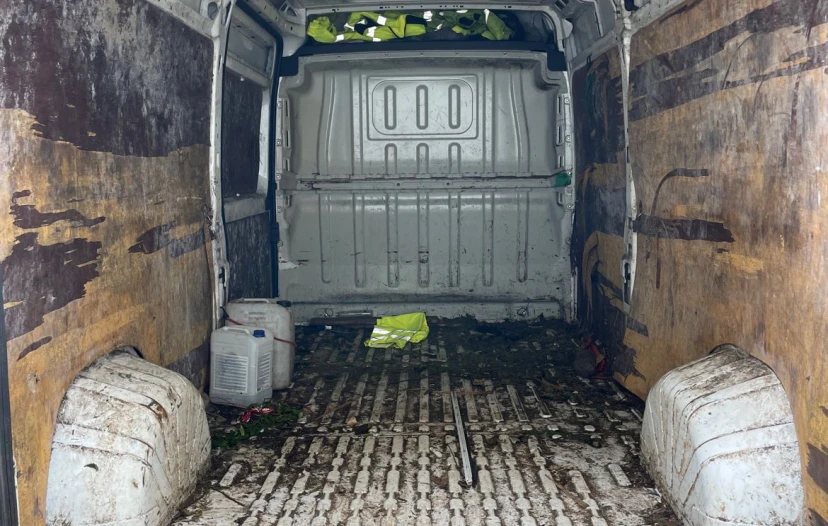
The Perfect Upfit: Maximizing Your Workday
Just as you would carefully consider the type of automobile to purchase for your everyday use, equal care should be taken with the type of upfit you select for your cargo work van.





